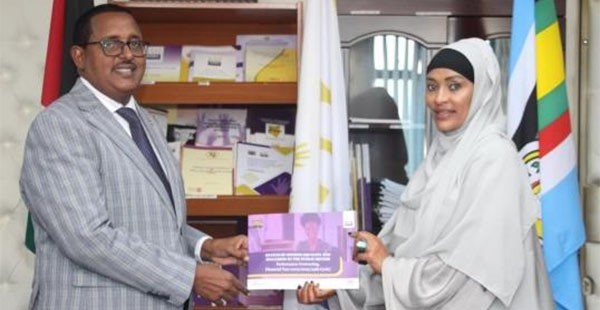Bridging Gaps: Pioneering Inclusivity in Infrastructure Development
In a pivotal meeting that signals a new chapter for inclusive development, Rehema Jaldesa, Chairperson of the National Gender and Equality Commission (NGEC), engaged in productive discussions with Simba Guleid, Chairperson of the Frontier Counties Development Council and a consultant with World Bank Kenya. The dialogue centred on forging a partnership between NGEC and the World Bank to champion inclusivity and equity within Kenya's transport infrastructure sector.
As Kenya advances its ambitious infrastructure agenda, questions around equity and accessibility remain at the forefront. Chairperson Jaldesa reaffirmed the Commission's steadfast commitment to embedding equality in development, particularly by assessing the social impact of infrastructure projects on Special Interest Groups (SIGs), including women, youth, persons with disabilities, and marginalised communities."The true measure of progress lies in its inclusivity," remarked Jaldesa. "Through partnerships like these, we can ensure that infrastructure development not only drives economic growth but also uplifts every segment of society."
The partnership envisions integrating evidencebased interventions to make infrastructure projects more inclusive.
This approach will scrutinise how roads, bridges, and transport hubs affect the everyday lives of SIGs, ensuring that no group is left behind in the march towards modernisation.
Simba Guleid praised the Commission’s proactive stance, noting that equity in infrastructure is not merely a moral obligation but a critical driver of sustainable development.
"When infrastructure serves everyone, it unlocks opportunities, fosters social cohesion, and paves the way for a more equitable future," he said.
The proposed collaboration underscores the transformative potential of merging policy expertise with the resources and global experience of the World Bank. Together, NGEC and the World Bank aim to reimagine Kenya’s infrastructure as a vehicle for equality, ensuring projects are designed with a people-centred approach that prioritises access, safety, and empowerment.
This partnership is poised to set a precedent for how development initiatives can balance growth with social responsibility, promising a future where Kenya's infrastructure connects more than just places – it connects people, fostering inclusion, equity, and shared prosperity.
Incorporating evidence-based interventions into the design and execution of such projects is essential to fostering a more inclusive society. By considering the needs of SIGs in every phase of infrastructure development, the NGEC aims to build a future where fairness, accessibility, and inclusivity are not just ideals, but realities.
As the Commission continues to champion inclusivity, this partnership with the World Bank signals a positive step towards creating sustainable and equitable growth across the nation, transforming the transport sector and other infrastructure projects into avenues for empowerment and opportunity for all.
Simba Guleid, Chairperson of the Frontier Counties Development Council and World Bank Kenya Consultant, receives a publication from Chairperson Hon. Rehema Jaldesa


Comments